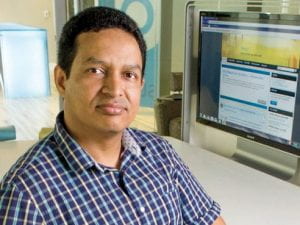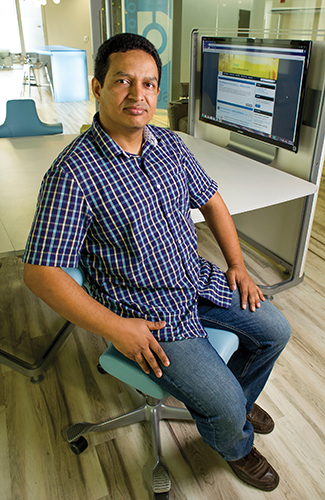 Ragib Hasan, Ph.D., director of the UAB’s Secure and Trustworthy computing lab, is featured in Inc.’s story, Digital Forensics: A Billion-Dollar Market in the Making. Hasan talks about the challenges facing data detectives and the ways technology can assist law-enforcement, help secure corporate, military and national institutions and protect the food and medicine supply chain.
Ragib Hasan, Ph.D., director of the UAB’s Secure and Trustworthy computing lab, is featured in Inc.’s story, Digital Forensics: A Billion-Dollar Market in the Making. Hasan talks about the challenges facing data detectives and the ways technology can assist law-enforcement, help secure corporate, military and national institutions and protect the food and medicine supply chain.
Hasan is particularly interested in cloud computing, which has not been adopted widely by industries that require a high level of security — such as health care and defense — because the technology cannot be held accountable and does not comply with data-protection regulations. Hasan is working to change that by finding ways to leverage provenance — the history of data, applications and cloud state — as a first-class property of clouds.
His SECRETLab is a part of UAB’s Center for Information Assurance and Joint Forensics Research, a multidisciplinary research center created by the Department of Computer and Information Sciences and the Department of Justice Sciences.
Read the Inc. story online.



You must be logged in to post a comment.